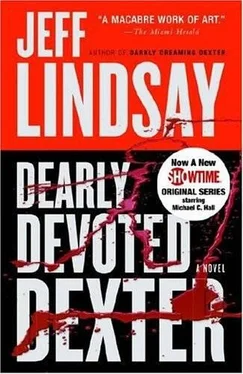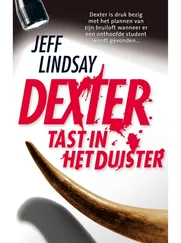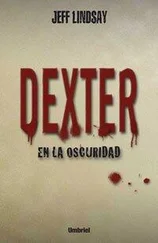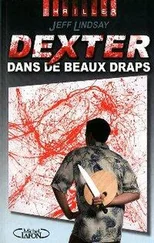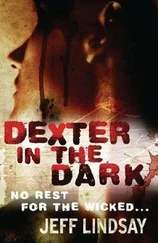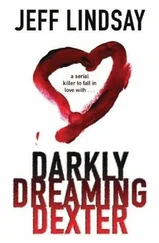Deb swerved around a school bus and roared up onto 836. “Yeah,” she said. She turned hard to avoid a BMW full of young men, who all flipped her off. “I think it’s a homicide.”
“You think,” I said.
“Yeah,” she answered, and then she concentrated on driving and I let her. High speeds always remind me of my own mortality, especially on Miami ’s roads. And as for the Case of the Stuttering Dispatcher-well, Sergeant Nancy Drew and I would find out soon enough, particularly at this speed, and a little excitement is always welcome.
In a very few minutes Deb managed to get us over near the Orange Bowl without causing major loss of life, and we came down onto the surface roads and made a few quick turns before sliding into the curb at a small house on N.W. 4th Street. The street was lined with similar houses, all small and close together and each one with its own wall or chain-link fence. Many of them were brightly colored and had paved yards.
Two patrol cars had already pulled up in front of the house, their lights flashing. A pair of uniformed cops were rolling out the yellow crime-scene tape around the place, and as we got out, I saw a third cop sitting in the front seat of one of the cars, his head in his hands. On the porch of the house a fourth cop stood beside an elderly lady. There were two small steps leading up to the porch and she sat on the top one. She seemed to be alternating weeping with throwing up. Somewhere nearby a dog was howling, the same note over and over.
Deborah marched up to the nearest uniform. He was a square, middle-aged guy with dark hair and a look on his face that said he wished he was sitting in his car with his head in his hands, too. “What have we got?” Deb asked him, holding up her badge.
The cop shook his head without looking at us and blurted out, “I’m not going in there again, not if it costs me my pension.” And he turned away, almost walking into the side of a patrol car, rolling out the yellow tape like it could protect him from whatever was in the house.
Deborah stared after the cop, then looked at me. Quite frankly, I could think of nothing really useful or clever to say, and for a moment we just stood there looking at each other. The wind rattled the crime-scene tape, and the dog continued to howl, a kind of weird yodeling sound that did nothing to increase my affection for the canine species. Deborah shook her head. “Somebody should shut that fucking dog up,” she said, and she ducked under the yellow tape and started up the walk to the house. I followed. After a few steps I realized that the dog sound was getting closer; it was in the house, probably the victim’s pet. Quite often an animal reacts badly to its owner’s death.
We stopped at the steps and Deborah looked up at the cop, reading his name tag. “Coronel. Is this lady a witness?”
The cop didn’t look at us. “Yeah,” he said. “Mrs. Medina. She called it in,” and the old woman leaned over and retched.
Deborah frowned. “What’s with that dog?” she asked him.
Coronel made a sort of barking noise halfway between laughing and gagging, but he didn’t answer and he didn’t look at us.
I suppose Deborah had had enough, and it’s hard to blame her. “What the fuck is going on here?” she demanded.
Coronel turned his head to look at us. There was no expression at all on his face. “See for yourself,” he said, and then he turned away again. Deborah thought she was going to say something, but changed her mind. She looked at me instead and shrugged.
“We might as well take a look,” I told her, and I hoped I didn’t sound too eager. In truth, I was anxious to see anything that could create this kind of reaction in Miami cops. Sergeant Doakes might very well prevent me from doing anything of my own, but he couldn’t stop me from admiring someone else’s creativity. After all, it was my job, and shouldn’t we enjoy our work?
Deborah, on the other hand, showed uncharacteristic reluctance. She glanced back at the patrol car where the cop still sat unmoving, head in hands. Then she looked back to Coronel and the old lady, then at the front door of the little house. She took a deep breath, blew it out hard, and said, “All right. Let’s have a look.” But she still didn’t move, so I slipped past her and pushed open the door.
The front room of the little house was dark, curtains and blinds all pulled closed. There was one easy chair that looked like it had come from a thrift shop. It had a slipcover that was so dirty it was impossible to tell what color it was supposed to be. The chair sat in front of a small TV on a folding card table. Other than that the room was empty. A doorway opposite the front door showed a small patch of light, and that seemed to be where the dog was yowling, so I headed that way, toward the back of the house.
Animals do not like me, which proves they are smarter than we think. They seem to sense what I am, and they disapprove, often expressing their opinion in a very pointed way. So I was a little bit reluctant to approach a dog already so obviously upset. But I moved through the doorway, slowly, calling out hopefully, “Nice doggie!” It didn’t really sound like a very nice doggie; it sounded like a brain-damaged pit bull with rabies. But I do try to put a good face on things, even with our canine friends. With a kind and animal-loving expression on my face, I stepped to the swinging door that led to what was obviously the kitchen.
As I touched the door I heard a soft and uneasy rustling from the Dark Passenger and I paused. What? I asked, but there was no reply. I closed my eyes for just a second, but the page was blank; no secret message flashed onto the back of my eyelids. I shrugged, pushed open the door, and stepped into the kitchen.
The upper half of the room was painted a faded, greasy yellow, and the lower half was lined with old, blue pinstriped white tiles. There was a small refrigerator in one corner and a hot plate on the counter. A palmetto bug ran across the counter and dove behind the refrigerator. A sheet of plywood had been nailed across the room’s only window, and there was a single dim lightbulb hanging from the ceiling.
Under the lightbulb was a large, heavy old table, the kind with square legs and a white porcelain finish. A large mirror hung on the wall at an angle that allowed it to reflect whatever was on the table. And in that reflection, lying in the middle of the table was a… um…
Well. I assume it had started life as a human being of some kind, quite probably male and Hispanic. Very difficult to say in its present state which, I admit, left even me a bit startled. Still, in spite of being surprised, I had to admire the thoroughness of the work, and the neatness. It would have made a surgeon very jealous, although it seems likely that very few surgeons would be able to justify this kind of work to an HMO.
I would never have thought, for instance, of cutting off the lips and eyelids like that, and although I pride myself on my neat work, I could never have done so without damage to the eyes, which in this case were rolling wildly back and forth, unable to close or even blink, always returning to that mirror. Just a hunch, but I guessed that the eyelids had been done last, long after the nose and ears had been oh-so-neatly removed. I could not decide, however, if I would have done these before or after the arms, legs, genitals, etc. A difficult series of choices, but from the look of things, it had all been done properly, even expertly, by someone who’d had plenty of practice. We often speak of very neat body work as “surgical.” But this was actual surgery. There was no bleeding at all, even from the mouth, where the lips and tongue had been removed. Even the teeth; one had to admire such amazing thoroughness. Every cut had been professionally closed; a white bandage was neatly taped to each shoulder where arms had once hung, and the rest of the cuts had already healed, in a way you might hope to find in the very best of hospitals.
Читать дальше
